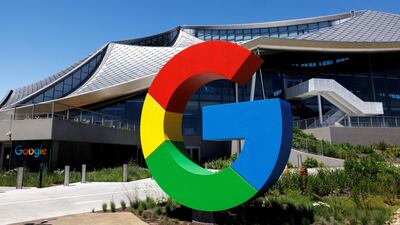Asian and European stocks rebounded on Friday on China's interest rate cut, but US equities gyrated amid fears that sky-high inflation will spark a recession.
London's FTSE 100 closed up 1.2 per cent, Frankfurt's DAX rose 0.7 per cent and Paris' CAC 40 inched up 0.2 per cent. In Asia, Hong Kong's Hang Seng rose 3 per cent, the Shanghai Composite gained 1.6 per cent and Tokyo's Nikkei 225 increased 1.3 per cent.
Wall Street ended mixed on Friday after a volatile session that saw Tesla slump and other growth stocks also lose ground.
The S&P 500 and the Nasdaq logged their seventh straight week of losses, their longest losing streak since the end of the dot-com bubble in 2001, while the Nasdaq slipped 0.3 per cent as tech stocks lost.
"Markets have been looking for an excuse to bounce, and a China rate cut provided the reason," IG analyst Chris Beauchamp told AFP.
The People's Bank of China (PBOC) announced it would lower its five-year loan prime rate – key interest rate governing how lenders base their mortgage rates – to 4.45 per cent from 4.6 per cent.
The move is in contrast to other major central banks – like the US Federal Reserve and the Bank of England – that are raising borrowing costs to combat rocketing consumer prices.
The Chinese move sparked optimism among traders that it could boost the world's second-largest economy from its Covid-induced stupor.
"The rate cut announced by the PBOC is obviously good news and is clearly targeted at revitalising the ailing property market which continues to suffer due to the crackdown last year and Covid lockdowns this year," said Craig Erlam, senior market analyst at Oanda.
"This could help to revive a hugely important part of the economy," he added, but "whether it's enough to help China hit its 5.5 percent growth target this year is another thing."
On Wall Street, the Dow suffered its eighth consecutive weekly decline, its longest since 1932 during the Great Depression.

Worries about surging inflation and rising interest rates have pummelled the US stock market this year, with danger signals from Walmart and other retailers this week adding to fears about the economy.
The S&P 500 spent most of the session in negative territory and at one point was down just over 20 per cent from its January 3 record high close before ending down 18 per cent from that level and flat for the day.
Closing down 20 per cent from that record level would confirm the S&P 500 has been in a bear market since reaching that January high, according to a common definition.
The tech-heavy Nasdaq was last down about 27 per cent from its record close in November 2021.
Weighing heavily on the S&P 500, Tesla tumbled 6.4 per cent after chief executive Elon Musk denounced as "utterly untrue" claims in a news report that he sexually harassed a flight attendant on a private jet in 2016.
Other megacap stocks also fell, with Google owner Alphabet down 1.3 per cent and Nvidia losing 2.5 per cent.
Gold edged up for its first week of gains in five weeks on persistent worries over economic growth and the dollar's decline over the week. US gold futures settled up 0.1 per cent at $1,842.10.

